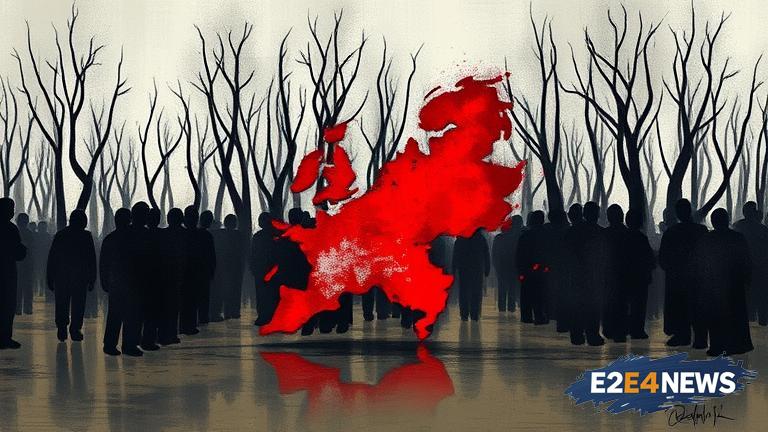The Netherlands has been called upon to utilize all its power and resources to prevent genocide, a committee has urged. This comes as the international community continues to grapple with the complexities of preventing mass atrocities. The committee’s report highlights the Netherlands’ historical and moral obligations to act in the face of potential genocides. The country’s unique position within the international community, coupled with its strong economy and diplomatic influence, makes it an ideal candidate to lead efforts in genocide prevention. The report emphasizes that the Netherlands must be proactive, rather than reactive, in its approach to preventing genocide. This includes working closely with international organizations, such as the United Nations, to identify early warning signs of potential genocides. Furthermore, the committee suggests that the Netherlands should prioritize diplomacy and dialogue in its efforts to prevent genocide, recognizing that military intervention should always be a last resort. The report also acknowledges the importance of educating the public about the dangers of genocide and the role that individuals can play in preventing it. In addition, the committee recommends that the Netherlands provide financial and logistical support to organizations working to prevent genocide. The Dutch government has been urged to take a comprehensive approach to addressing the root causes of genocide, including poverty, inequality, and social injustice. The report also highlights the need for the Netherlands to work closely with other countries to develop a coordinated approach to genocide prevention. This includes sharing intelligence and best practices, as well as providing mutual support and encouragement. The committee’s report has been welcomed by human rights organizations, who have long been advocating for greater action to prevent genocide. However, some critics have argued that the report does not go far enough, and that the Netherlands should be doing more to hold perpetrators of genocide accountable. Despite these criticisms, the report represents an important step forward in the Netherlands’ efforts to prevent genocide. The Dutch government has pledged to take the report’s recommendations seriously, and to work towards implementing its suggestions. In the coming months, the government is expected to announce a series of new initiatives aimed at preventing genocide. These initiatives are likely to include increased funding for organizations working to prevent genocide, as well as new programs aimed at educating the public about the dangers of genocide. The Netherlands’ efforts to prevent genocide will be closely watched by the international community, who will be looking to see whether the country is able to make a meaningful impact. The report’s emphasis on the need for a comprehensive approach to addressing the root causes of genocide has been particularly welcomed. This approach recognizes that genocide is often the result of a complex array of factors, including economic, social, and political instability. By addressing these underlying factors, the Netherlands hopes to be able to prevent genocide before it occurs. The committee’s report has also highlighted the importance of international cooperation in preventing genocide. This includes working closely with other countries, as well as international organizations, to develop a coordinated approach to genocide prevention. The Netherlands’ efforts to prevent genocide will require significant resources and commitment, but the potential rewards are substantial. By working to prevent genocide, the Netherlands can help to save countless lives, and to promote peace and stability around the world. The report’s recommendations have been endorsed by a wide range of organizations, including human rights groups and humanitarian organizations. These organizations have welcomed the report’s emphasis on the need for a comprehensive approach to addressing the root causes of genocide. The Netherlands’ efforts to prevent genocide will be an important part of its foreign policy in the coming years, and will require close cooperation with other countries and international organizations.





